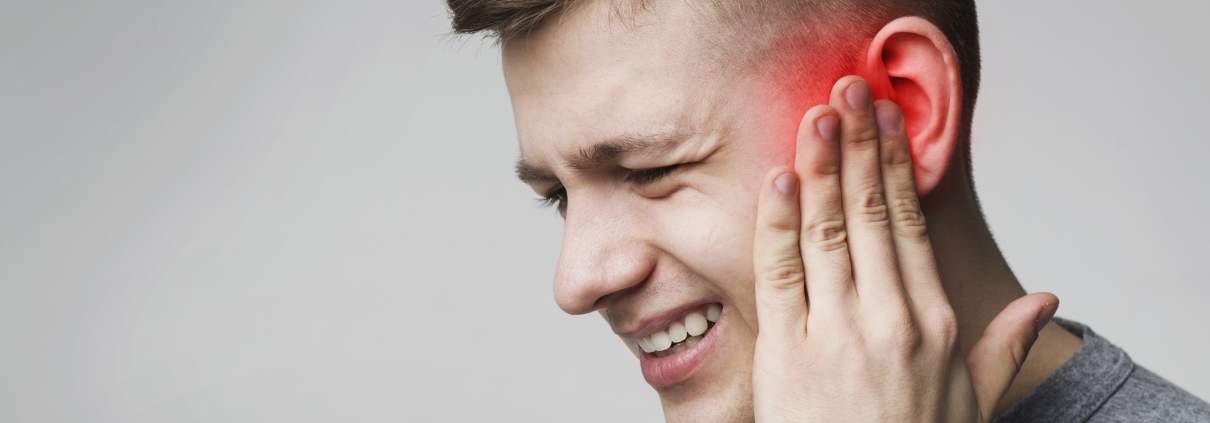Tinnitus FAQ
Can Tinnitus Be Treated With Hearing Aids?
Yes, it can. Professional audiological services offer effective treatment options to those struggling with tinnitus. Hearing aids are one such option. They work to restore auditory stimulation to the brain. Hearing loss causes your brain to become hyperactive. This leads cells in the dorsal cochlear nucleus to go wild and mistake this hyperactivity as sound. This, in turn, is what causes tinnitus.
By providing auditory stimulation, hearing aids can help reduce tinnitus for many people. Not only that, modern hearing aids come with special masking features called Tinnitus Sound Generators (TSGs). A TSG creates white-noise-like sounds that block out the buzzing or ringing associated with tinnitus. But before you make a purchase, it’s recommended to have a hearing evaluation. It is essential in coming up with the best possible care for your (or your loved one’s) tinnitus.
What Type of Hearing Aid Is Best for Tinnitus?
Finding the right hearing aid for your (or your loved one’s) tinnitus can be daunting. There are so many hearing aid types out there! But at the end of the day, the best hearing aid you need is the one that has the right fit. Pure and simple.
Professional audiologists and hearing care experts are the best to ask for recommendations. Hearing aids come in four different types: behind-the-ear (BTE), in-the-ear (ITE), receiver-in-the-ear (RITE), in-the-canal (ITC), and receiver-in-canal (RIC).
Each of these types has qualities that work well in their favor. But it is important to consider comfort, size, and shape first. Then, you can start looking into its technological features. The latest models have Bluetooth compatibility, streaming capabilities, built-in sound enrichment, and more!
You don’t need a prescription to get a hearing aid anymore. Nevertheless, it’s best to have a hearing test and evaluation by an audiologist. An audiologist can give you the best advice for choosing the right hearing aid. At the end of the day, it’s important to choose the hearing aid that’s most comfortable and effective for you and your tinnitus.
What Does an Audiologist Do for Tinnitus?
An audiologist should be one of the first healthcare professionals that you consult for your tinnitus. She/he will have the expertise and experience to help you improve your quality of life despite living with tinnitus.
Your audiologist will assess the possible underlying causes of your tinnitus. True, determining the cause of tinnitus is challenging. But the good news is that there are many treatment options for tinnitus. Treatment may include hearing aids. Your audiologist may also recommend another assistive device like an implant. You may also be recommended for cognitive therapies like tinnitus retraining therapy. She/he will also recommend lifestyle changes to help manage your condition effectively.
Can Wearing a Hearing Aid Make Tinnitus Worse?
The popular opinion that wearing a hearing aid can worsen tinnitus is nothing more than a myth. In fact, the right kind of hearing aid may actually provide relief and help improve your quality of life.
Hearing aids help people suffering from tinnitus control the sounds (and levels of sound) they hear. The latest models, in fact, offer connectivity to helpful mobile phone applications. You can get hearing aids that have features where you can amplify or reduce certain frequencies. Or, connect your hearing aid to an app and get masking sounds and white noise generators. You can get a hearing aid off the counter. But having a hearing evaluation will be more helpful in dealing with your tinnitus.
Can Tinnitus Be Cured by Surgery?
Unfortunately, there is no universal surgical cure for tinnitus. Fortunately, with the help of professional audiological services, you can get help. An audiologist will identify the root cause of your tinnitus and recommend the best course of action for you.
Identifying and solving the cause of your tinnitus is the first step. Undergoing surgery, unfortunately, does not work for everyone. Surgical procedures like stapedectomies may help improve hearing in most patients. But studies have shown that only about half of them experienced relief from tinnitus. Similar research into neuroma removal surgery yielded the same results. A study of 400+ patients found that only 45 percent found relief for their tinnitus.
Professional audiological services remain the gold standard when treating tinnitus. Hearing aids, hearing care and integrative health approaches are just some of the effective methods for relief.
A procedure called cochlear implant surgery has been shown to be effective in providing relief. This can be a procedure that you could consider after consulting your audiologist. She/he is your best option for getting the treatment or procedure that will provide you with some relief.
What Deficiency in Vitamins Causes Ringing in the Ears?
Tinnitus has been linked to vitamin deficiencies. Specifically, deficiencies in vitamins B12 and D.
A vitamin B12 deficiency may lead to the loss of myelin. Myelin is the protective cover surrounding the nerves in your inner ear. A vitamin B12 deficiency decreases myelin effectiveness, compromising the nerve pathways. This, in turn, reduces nerve function in the ear, and tinnitus can be the resulting effect.
Besides the vitamin B12 deficiency, a vitamin D deficiency may also lead to poor ear bone health. This directly leads to tinnitus and to moderate-to-severe hearing loss. A 2021 study found that 91.5% of patients with tinnitus had vitamin D deficiency. This is a good reminder taking your vitamins is necessary for proper health care. Vitamins B12 and D can be found naturally in foods such as meat, fish, and dairy products, as well as in vitamin supplements. To know more about the treatments for these vitamin deficiencies, consult your audiologist.



